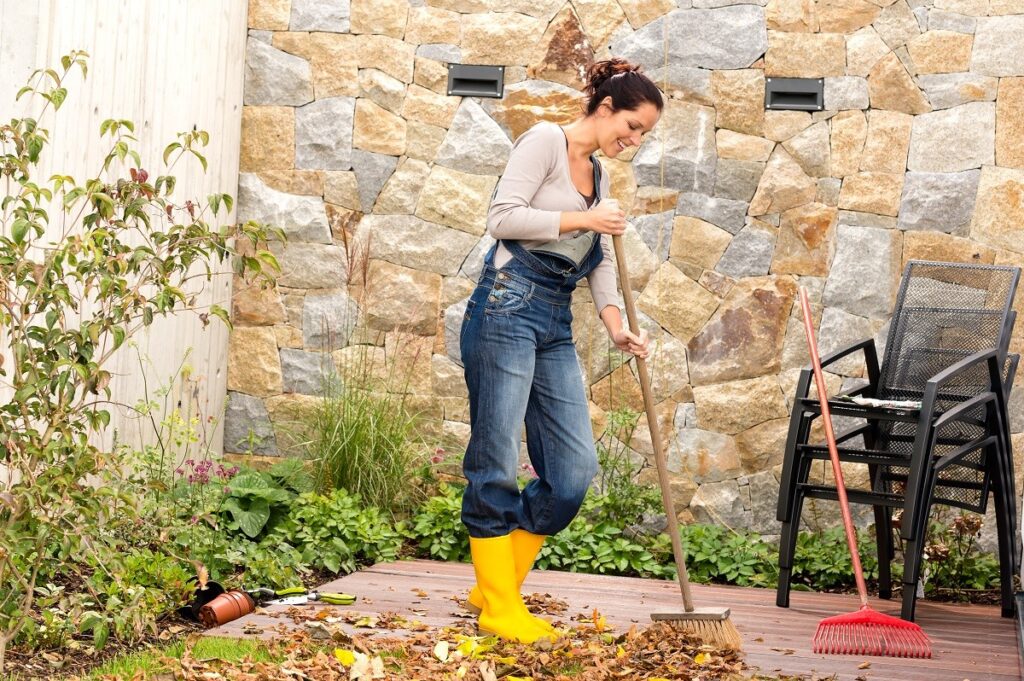For most of the country, ticks are a threat to health and outdoor living spaces from March to October. Unfortunately, in certain areas such as the western and southern states, ticks are a problem throughout the year. Why should you care? These real-life vampires are known to transmit some serious diseases, including Lyme disease and Rocky Mountain spotted fever. That’s why it’s imperative to make sure your property is a “tick-safe” zone. We reached out to PestWorld.org, who provided us with these easy tips to keep ticks out of your yard and away from your family members, furry or otherwise.
1. Keep your yard maintained.
Ticks love tall grass. They quest by holding on to the top of a grass blade with their back legs and sticking out their front legs. As a potential host passes by, the tick can grab onto the person’s pant leg or their dog’s fur before eventually attaching to a host.
To help keep ticks out of your yard, maintain your property. Cut your grass regularly to keep it short. Remove “leaf litter” and brush from around your home and yard. Since ticks prefer leaf litter and wooded areas, create a three-foot barrier of gravel, wood chips, or mulch between your grassy areas and tick-prone areas.
Also, trim branches around your property’s edge to bring in more sunlight. (Sunny areas are less likely to have ticks.) Finally, groundcover vegetation provides a habitable area for ticks, so keep this type of vegetation to a minimum.
2. Deter animals from coming into your yard.

Ticks live on their hosts, such as deer, raccoons, and even stray dogs. (The “blacklegged tick” is known as the “deer tick” or the “bear tick” for a reason!) Some experts estimate that more than 1,000 ticks can live on deer. However, small animals, such as mice, chipmunks, and shrews, are more likely to carry ticks that can transmit Lyme disease. Make sure to keep these tiny creatures out of your yard and home.
These easy tips can aid in your tick control efforts:
- Remove woodpiles and leaf litter, which mice can use as nesting areas.
- Keep your garbage cans tightly closed to discourage opossums, raccoons, and skunks from coming into your yard for food.
- Remove any excess debris or items, such as old furniture, mattresses, or trash from your yard.
- Avoid hanging bird feeders as deer mice like to eat on bird feed.
- Install a chimney screen to keep squirrels, racoons, and birds out of your home.
- Inside your home, store food in airtight containers and clean up crumbs immediately.
- Keep firewood away from your home and on a dry, raised surface.
- Include flowers and plants that repel ticks (or animals that play host to ticks) in your yard and garden. Such plants include rosemary, garlic, lavender, mint, lemongrass, marigolds, chrysanthemums, daffodils, and sage.
If possible, install an eight-foot fence around your property to keep wayward animals out of it.
3. Keep potential “hosts” away from wooded areas.
Most ticks are located within three yards of the lawn’s edge, usually along woodlands, stonewalls, and ornamental plantings. Set up your yard to keep ticks away from your outdoor living spaces.
Keep playground equipment, decks, and patios away from your yard’s edges and trees, and in the sunlight. Check any outdoor furniture frequently for ticks and pests that carry ticks, such as mice. Also, limit pet activity around the edge of your yard, so your furry friends don’t pick up any hitchhiking ticks.
4. Call a pest control specialist.
If you can’t prevent a tick infestation, then you may look for tick treatments for your yard. If that’s the case, then contact a professional pest control specialist. There are several acaricides (since ticks are arachnids) that can help to kill ticks in your yard or stop ticks from getting to your yard in the first place.
Unfortunately, certain acaricides can be dangerous to the environment, wildlife, beneficial insects, and of course, you. Talk to a professional, voice any concerns you may have, and then decide on the right course of action for your family and yard.
Stay on top of home maintenance
Homeownership can be hard, but it doesn’t have to be. The vipHome.app can help. In less than four minutes, enjoy a new way to manage your home. Simply download the app, register your home, and enjoy a simplified homeownership experience.





